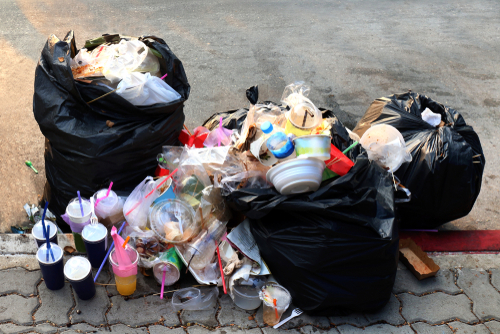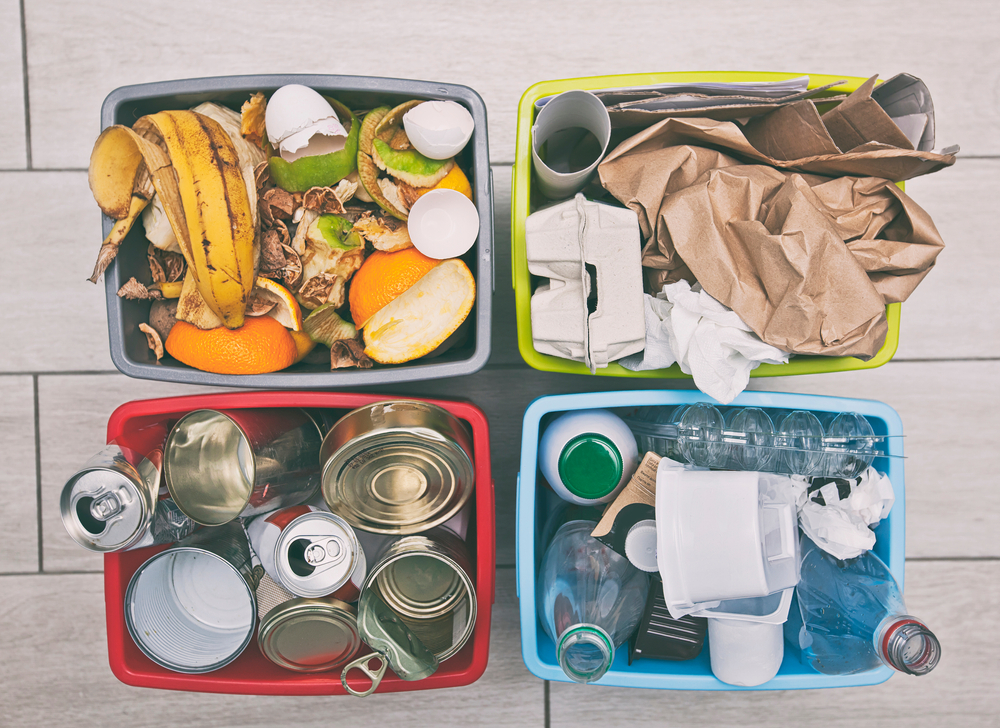July 5, 2024 - Benjamin Ehinger
Tips for Reducing Household Waste: Practical Strategies for Everyday Life
CALL NOW 844-762-8449
Reducing household waste is a practical and impactful way to contribute to a more sustainable life and protect the environment. By being mindful of how you manage waste in your home, you can significantly lessen your environmental footprint. Simple actions such as reusing items, recycling properly, and reducing consumption can lead to substantial changes in our waste production.
For those committed to minimizing waste, there are numerous strategies to explore. Embracing reusable products, being savvy about how you manage your kitchen, and participating in community recycling programs are effective steps. These small changes accumulate into meaningful environmental benefits and cultivate a culture of sustainability at home.
By integrating waste reduction into your daily routines, you can create a cleaner, greener living space. From making eco-friendly purchasing decisions to properly disposing of special materials, your efforts play a crucial role in the broader movement toward a sustainable future.
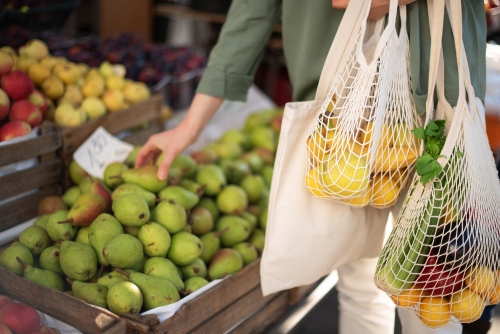 Implementing sustainable shopping habits can significantly reduce household waste, lower your environmental impact, and promote eco-friendly living. These habits include choosing eco-friendly products, minimizing single-use plastics, and benefiting from bulk purchases.
Implementing sustainable shopping habits can significantly reduce household waste, lower your environmental impact, and promote eco-friendly living. These habits include choosing eco-friendly products, minimizing single-use plastics, and benefiting from bulk purchases.
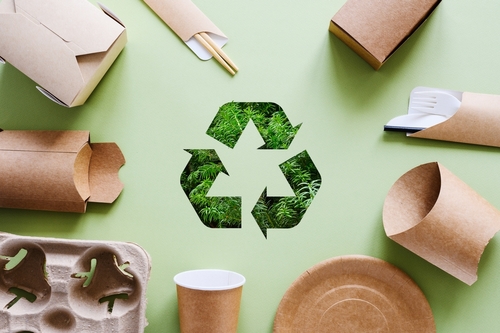 Transforming old or unused items into something useful can significantly reduce household waste. You can also organize donation drives to ensure that items you no longer need find new homes where they are required.
Transforming old or unused items into something useful can significantly reduce household waste. You can also organize donation drives to ensure that items you no longer need find new homes where they are required.
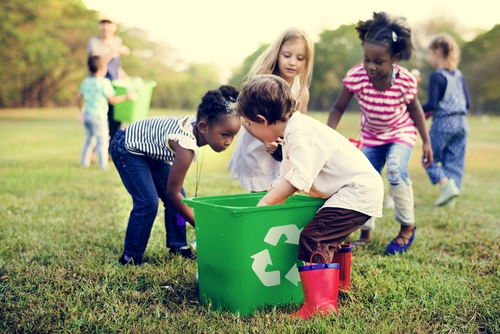 Active participation in both community and school settings can significantly reduce household waste. By implementing recycling programs and educational initiatives, you can foster a culture of sustainability and environmental awareness.
Active participation in both community and school settings can significantly reduce household waste. By implementing recycling programs and educational initiatives, you can foster a culture of sustainability and environmental awareness.
Key Takeaways
- Reducing household waste contributes to a sustainable life.
- Simple actions like reusing and recycling can make a big difference.
- Sustainable shopping and proper disposal of materials are key strategies.
The Impact of Household Waste
Household waste significantly affects the environment and contributes to landfill overloading, which in turn influences climate change and the overall environmental footprint.Understanding Waste Composition
Household waste comprises various materials, including organic waste, plastics, paper, glass, metals, and textiles. Organic waste such as food scraps and yard trimmings can decompose, releasing methane, a potent greenhouse gas that accelerates climate change. Plastics, on the other hand, persist in the environment for hundreds of years, leading to pollution and marine life hazards. Recycling materials like paper, metals, and glass reduces the need for raw material extraction and conserves natural resources. Understanding the different types of waste generated in your home can help you identify opportunities for reducing, reusing, and recycling effectively.Consequences of Landfill Overload
Landfills are a primary destination for household waste, and their capacity is limited. When landfills become overloaded, they emit harmful greenhouse gases like methane, contributing to global warming. Moreover, the leachate produced can contaminate soil and groundwater, posing risks to human health and ecosystems. Reducing landfill waste minimizes these environmental impacts. Strategies include composting organic waste, recycling eligible materials, and repurposing or donating items whenever possible. By limiting what ends up in landfills, you help reduce the strain on these facilities and lower your environmental footprint. For more information on reducing household waste, visit US EPA and Consumer Reports.Strategies for Waste Reduction
Reducing household waste requires adopting sustainable habits such as embracing zero-waste practices, enhancing recycling efforts, and employing effective composting techniques. Each strategy plays a crucial role in minimizing waste and promoting environmental responsibility.Adopting a Zero-Waste Mindset
Zero-waste living focuses on reducing the waste you generate by choosing reusable products over disposable ones. Start by using reusable bags, bottles, and containers instead of single-use plastic. Choose products with minimal or no packaging. Incorporate reusable items like cloth napkins, stainless steel straws, and beeswax wraps for food storage. Buying in bulk and choosing items with longer life spans, such as quality clothing and durable household goods, contributes significantly to waste reduction. Implementing DIY solutions for household cleaners and personal care items can also cut down on packaging waste and reduce chemical exposure.Enhancing Recycling Efforts
Proper recycling significantly diminishes waste sent to landfills. Familiarize yourself with local recycling guidelines to ensure that you recycle correctly. Items such as paper, cardboard, glass, and certain plastics should be sorted accordingly. Clean and sort your recyclables to avoid contamination, which can render batches of recyclables useless. Invest in separate bins for different materials to make recycling easier. Additionally, look for recycling programs beyond curbside pickup. Many communities offer drop-off locations for items like electronics, batteries, and hazardous materials. Participating in community recycling drives can also increase your recycling impact.Effective Composting Techniques
Composting transforms organic waste into a valuable soil amendment. To get started, designate a compost bin or pile in your yard. Combine green materials, such as fruit scraps and grass clippings, with brown materials like leaves and cardboard. Turn your compost regularly to speed up the decomposition process and minimize odors. Moisture is crucial; keep the compost pile damp but not waterlogged. Utilize a kitchen compost bin to collect food scraps efficiently, ensuring easy transfer to your outdoor pile. Vermicomposting, which uses worms to break down organic matter, is another efficient option, especially for small spaces. By implementing these strategies, you can make a significant difference in reducing household waste and contributing to a healthier environment.Sustainable Shopping Habits
 Implementing sustainable shopping habits can significantly reduce household waste, lower your environmental impact, and promote eco-friendly living. These habits include choosing eco-friendly products, minimizing single-use plastics, and benefiting from bulk purchases.
Implementing sustainable shopping habits can significantly reduce household waste, lower your environmental impact, and promote eco-friendly living. These habits include choosing eco-friendly products, minimizing single-use plastics, and benefiting from bulk purchases.
Choosing Eco-Friendly Products
When shopping, look for items labeled as eco-friendly or sustainable. These products often use less energy to produce and come in minimal or compostable packaging. Select green products made from recycled or renewable materials. Select loose produce instead of pre-packaged items. Choose products that come in reusable or recyclable containers. Organic and locally-sourced items are often packaged more sustainably and have a lower carbon footprint. Reusable bags are essential. Bring them for all your shopping needs, reducing the need for disposable plastic bags. Invest in products that promise longevity and repairability to reduce future waste.Minimizing Single-Use Plastics
Eliminating single-use plastics is vital. Start by avoiding products that come in plastic packaging. Instead, choose items packaged in paper, glass, or metal that are easier to recycle. Use reusable produce bags for fruits and vegetables, storing them in your shopping cart without additional plastic bags if necessary. Replace disposable items like plastic wrap, straws, and utensils with reusable alternatives made from stainless steel, bamboo, or silicone. Consider products with a refillable option. For instance, some stores offer bulk refilling stations for items like detergents, eliminating the need for new packaging each time you purchase.Benefits of Bulk Purchases
Buying in bulk is a great way to minimize packaging waste. Products bought in bulk often come without excessive individual packaging, thus reducing waste significantly. Find stores that offer bulk bins where you can bring your own containers or bags to refill. This practice is beneficial for dry goods like grains, nuts, and spices. Not only does bulk purchasing reduce the use of single-use plastics, but it often saves money. By buying larger quantities, you cut the frequency of shopping trips, lowering your overall environmental impact. Take advantage of bulk shopping for items with a long shelf life. Household staples like rice, pasta, and cleaning supplies are excellent bulk purchase candidates.Smart Kitchen Management
Effective kitchen management can significantly reduce household waste, conserve energy, and ensure sustainable practices. By focusing on meal planning, proper food storage, and composting, you can improve efficiency and minimize waste.Preventing Food Waste with Planning
Careful meal planning is key to minimizing food waste. Start by taking an inventory of your pantry and refrigerator. List ingredients that need to be used soon and create meals around them. Keep a shopping list that includes only what you need for your planned meals. This approach helps you buy quantities that match your consumption patterns, preventing overbuying. Consider cooking larger batches and freezing extras. This method not only reduces waste but also saves time and energy. Utilizing leftovers effectively can also minimize waste. Repurpose them into new dishes or store them for future meals.Proper Food Storage Solutions
Storing food correctly can extend its longevity and keep it safe to eat. Use airtight containers for dry goods to prevent infestation and spoilage. Items like rice, pasta, and cereals stay fresh longer in sealed storage. Refrigerate perishable items promptly and use appropriate containers to maintain their quality. Store fruits and vegetables correctly to avoid premature ripening — for example, keep apples away from other fruits. Consider investing in a vacuum sealer. It helps in preserving the freshness of meats, cheeses, and other perishables. Using the FoodKeeper App can also provide guidance on optimal storage techniques.Composting Organic Waste
Composting transforms organic waste into nutrient-rich compost for gardens. Start by setting up a compost bin in your kitchen or backyard. Collect food scraps like vegetable peels, coffee grounds, and eggshells. Balance your compost with green and brown materials. Greens include fruit and vegetable scraps, while browns cover items such as dried leaves and paper. Maintaining this balance ensures a healthy composting process. Use the compost in your garden to enrich the soil. This practice not only reduces the volume of waste going to landfills but also promotes sustainable gardening. By composting, you help close the loop in the food cycle, returning valuable nutrients back to the earth.Reusing and Repurposing Items at Home
 Transforming old or unused items into something useful can significantly reduce household waste. You can also organize donation drives to ensure that items you no longer need find new homes where they are required.
Transforming old or unused items into something useful can significantly reduce household waste. You can also organize donation drives to ensure that items you no longer need find new homes where they are required.
Finding New Life for Old Items
Instead of discarding items that seem to have outlived their usefulness, consider creative ways to repurpose them. For example, old clothing can be turned into cleaning rags, quilts, or reusable shopping bags. Reusables like jars and containers are excellent for pantry storage or as plant pots. You can also find alternative uses for other household items. Toys that are no longer in use can be transformed into decorative pieces or handed down to younger children. Tools can be maintained and repurposed for various DIY projects. Setting up a yard sale is another great way to pass on items that you no longer need, giving them a second life while making a bit of money.Organizing Donation Drives
Donation drives are a fantastic way to ensure your unused items benefit others. Start by gathering items you no longer need, such as clothing, books, toys, and reusable containers. Make sure the items are in good condition. Coordinate with local charities or organizations that accept donations. This not only helps reduce waste but also supports those in need. Setting up a community yard sale where proceeds go to charity can also be effective. Encourage neighbors to contribute their unused items. This collective effort makes a significant impact, turning your unwanted goods into valuable resources for others.Proper Disposal of Special Materials
Proper disposal of special materials like electronics, batteries, and household hazardous waste is crucial. Mismanagement of these items can harm both the environment and human health. Understanding how to handle and dispose of these items responsibly is essential.Handling Electronics and Batteries
Electronics such as old computers, phones, and tablets shouldn’t end up in regular trash bins. Instead, look for e-cycling programs in your community. Many retailers offer take-back services where you can drop off old devices for proper disposal or recycling. Batteries are another significant concern, especially if they contain heavy metals. For safe disposal, consider using designated battery recycling bins or programs. Alkaline batteries, commonly used in household items, can sometimes be discarded in the regular bin based on local guidelines. Rechargeable batteries must always go to a specialized recycling facility. Key Steps:- Utilize e-cycling programs for electronic devices.
- Drop rechargeable batteries in designated battery recycling locations.
- Check local guidelines for discarding alkaline batteries.
Managing Hazardous Household Waste
Household hazardous waste includes items like paint, pesticides, and cleaning chemicals. These should never be thrown in the regular trash or poured down drains due to their potential environmental and health impacts. Instead, bring these items to community hazardous waste collection centers. Many communities host hazardous waste collection days, where you can drop off items like used motor oil, solvents, and fertilizers. Always store hazardous waste properly using airtight containers until it can be disposed of safely. Key Steps:- Use community hazardous waste collection centers.
- Participate in local hazardous waste collection events.
- Properly store hazardous items until they can be safely disposed of.
Community and School Involvement
 Active participation in both community and school settings can significantly reduce household waste. By implementing recycling programs and educational initiatives, you can foster a culture of sustainability and environmental awareness.
Active participation in both community and school settings can significantly reduce household waste. By implementing recycling programs and educational initiatives, you can foster a culture of sustainability and environmental awareness.
Initiating Community Recycling Programs
Engaging your community in recycling can start with simple steps. Organize a neighborhood recycling drive, encouraging residents to sort and collect recyclable materials like paper, plastic, and glass. Providing clear recycling guidelines helps ensure everyone knows what can and cannot be recycled. Consider working with local businesses to support your initiatives. They might sponsor recycling bins or donate funds for educational pamphlets. You can also set up a composting program to reduce organic waste, transforming kitchen scraps into valuable compost for gardens. Collaborate with local authorities to establish more recycling drop-off points, making it convenient for community members to participate. Hosting regular meetings or workshops can further educate and motivate residents to engage in eco-friendly practices.Educational Programs for Waste Reduction
Schools play a pivotal role in educating the next generation about waste reduction. Start by integrating waste reduction topics into the curriculum. Teach students about the environmental impact of waste and the benefits of recycling. Implement practical activities like classroom recycling bins and eco-friendly lunch initiatives where students are encouraged to use reusable containers and utensils. Organizing events such as clothing and book swaps can highlight the importance of reusing items. Engage students with interactive projects like waste audits, where they analyze the school’s waste to identify areas for improvement. Additionally, collaborate with parents and teachers to create a sustainable culture, ensuring these practices extend beyond school grounds into homes. By fostering a comprehensive educational approach, you help students develop lasting eco-friendly habits.Tips for Reducing Waste While Traveling
Reducing waste while traveling involves planning and using sustainable alternatives to common disposables. This approach ensures a minimal environmental impact during your trip.Packing a Zero-Waste Travel Kit
A zero-waste travel kit is essential for maintaining a sustainable lifestyle. Start by including a reusable water bottle. This eliminates the need to purchase bottled water and can be refilled at numerous locations. Next, pack reusable shopping bags. These are useful for carrying groceries or souvenirs and prevent the use of single-use plastic bags. Include a travel mug for coffee or other drinks. Many cafes offer discounts for bringing your own cup. Other items to consider are reusable utensils, a stainless steel straw, and cloth napkins. These small changes significantly reduce the waste produced during meals. Ensure each item is durable and of high quality to avoid the need for frequent replacements. Quality over quantity is a key principle in a zero-waste lifestyle.Minimizing Waste on the Go
While traveling, you’ll encounter various situations requiring waste management. One effective strategy is choosing packaging-free foods like fruits and vegetables. Eating at local restaurants or street vendors often results in less waste compared to packaged fast food. If you’re staying in accommodations with a kitchen, cooking your own meals can further reduce waste. Take reusable containers for leftovers and avoid single-use packaging. Choose digital maps and tickets instead of paper versions. Encourage places you visit to adopt waste-reducing measures. Engaging with local businesses can promote broader conservation efforts. By being mindful of your waste and making conscious choices, you contribute significantly to environmental conservation while enjoying your travel experiences.Frequently Asked Questions
Discover practical methods to minimize waste, effective strategies for managing residential waste, and how communities can collectively reduce waste. Learn best practices for ecological waste disposal and significant waste reduction habits.What methods can households implement to minimize waste generation?
Households can start by tracking and analyzing their waste patterns. This helps in creating plans to reduce waste. Transitioning to reusable shopping bags, containers, and using bulk bins can significantly cut down on packaging waste.What are some effective strategies for managing waste in residential areas?
Promote neighborhood composting programs to handle organic waste. Encourage proper recycling by providing information about local facilities. Implement community cleanup events to maintain a clean and waste-free environment.How can communities participate in reducing waste collectively?
Communities can organize workshops to educate residents on waste reduction. Establishing shared tools and resources, like a tool library, promotes fewer purchases and less waste. Regularly scheduled community swap events encourage reuse. When you organize a community clean-up to help reduce waste, you can use a residential dumpster rental to toss out all the trash.What are the best practices for disposing of waste ecologically at home?
Composting kitchen scraps and yard waste turns organic material into valuable compost. Separating recyclable materials like paper, glass, and plastics for proper disposal is crucial. Reducing electronic waste by donating old devices to charities or recycling programs also helps.Which household habits contribute to significant waste reduction?
Maintaining appliances and clothing to extend their lifespan reduces waste. Planning meals and buying only necessary ingredients helps minimize food waste. Choosing products with minimal or recyclable packaging contributes to lesser overall waste generation.How can individuals and families practice the 3 Rs (Reduce, Reuse, Recycle) effectively?
Reducing involves consciously buying less and choosing durable products. Reusing can mean repurposing old items to serve new functions around the house. Recycling effectively involves educating oneself about local guidelines and ensuring proper separation of recyclables. Learn more about these practices at the EPA’s guide on reducing waste.RECENT BLOGS
Our Reviews
glenda prowell
1719860540
Louiner made it easy to make arrangements to have a dumpster put in my driveway. He was able to answer all my questions and made the entire process simple.
Tyler Floyd
1719520303
Incredible customer service, very informative
Natalie Davidson
1719440638
Heather provided the best customer service that I have received in a very long time. She was knowledgeable, informative without being pushy, friendly and efficient. I really appreciated all of her help.
Glenda Lanier Prowell
1719241850
I have ordered an 11 yard dumpster to be delivered to my house.Lonier was extremely helpful and answered all my questions. The rate was very reasonable.
debbie Craton
1718740650
Heather was SUPER friendly and worked with me to get me whst I needed.I am very glad I called Waste Removal
